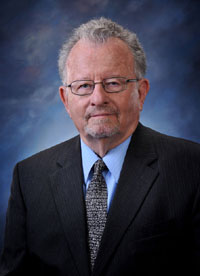
Western policy makers tend to give more weight to military, economic, and immediate political factors than to the ethno/religious realities of people on the ground. Such was the case in the late 1800s and very early 1900s when the Pashtun were as skilled as most groups (dominated by foreign powers) in playing the Russians against the British. The British drew a line (named after their general Durand) dividing “geo-politically” the Pashtun people into those in southern Afghanistan (today about 14 million) from their kin (31 million) in what is now western Pakistan. The Pashtun are the second largest ethnic group in Pakistan after the 79 million Punjabis*.
For the British at the time, there may have been that old Roman (divide et impera) idea that if the Pashtun people are divided, they can be more easily ruled. In today’s reality, the future of Afghanistan is closely linked to Pakistan’s future. One of the many dilemmas for US diplomacy is how to “win” in Afghanistan without losing our alliance with Pakistan. The ancient Pashtun people of today’s southern Afghanistan and western Pakistan are a critical to any reasonable solution.
In July, after five-plus months in office, President Trump appeared to be following experienced advice in questioning why we needed more troops in Afghanistan. For some advisors, US troop withdrawal was linked to their being replaced by “private contractors.” More recently, the actual numbers of US military have been increased fearing that less support for the Afghan government would encourage the Taliban and Islamic State forces to prevail. What the US decides to do or not to do in Afghanistan will affect our relationship with Pakistan, which will affect the changing and precarious politics of Southwest Asia and North Africa, which is what we call the Middle East.
“Unpredictability” is the only word to describe the Middle East as we move into 2018, and we should say the same about the USA, Russia and many other nations. For instance, who could imagine that President Bush’s certainty in invading Iraq in 2003 would result in every candidate (16?) in the Republican primary in 2016 affirming that they opposed that war? Egypt, since the Arab Spring of 2011 has had three governments. Israel’s right wing Likud government is losing its majority coalition, Saudi Arabia is in turmoil as oil is less in demand globally, and more citizens (especially women) want more rights. Turkey almost had a coup which was undemocratically repressed, and the list goes on.
V. Lanternari, in his classic Religions of the Oppressed, suggests that oppressed people, in the face of asymmetric force, rely more on religion for solace and inner strength. One way to understand the Middle East is to see that the old schism between Sunni and Shia Islam is a one factor in the new alignments. This helps explain why Iran (95+% Shia) is aligning with Iraq, where the majority Shia came to power by election after the 2003 US invasion. Lebanon’s traditional Sunni majority is challenged by the growing Shia, especially in the south where the Israeli invasion of 1982 helped to create Hezbullah, the military wing of the Lebanese Shia. The Houthi of Yemen are Shia. The ruling Alawis of Syria are a Shia minority but empowered by Russia.
Saudi Arabia is the core of Arab Sunni power and home to Mecca and Medina towards which millions of Muslims from Dakar to Djarkarta face five times a day in prayer. The majority of Palestinian Muslims in Israel are Sunni; and in the changing political climate, Israel is reluctantly realizing that they are in the Saudi camp. Most Kurds are Sunni but emphasize their ethnicity over their religion which partially explains why they oppose mostly Sunni Turkey. Only Israel supported the Kurdish vote for independence from Iraq.
To return to the mostly Sunni Pashtun of southern Afghanistan and western Pakistan, the USA’s dilemma continues to be growing as we have seen Pakistan as an important ally; but Israel has been far more important. If the USA continues our support of the Afghan government against the Sunni Pashtun, our ties to Pakistan will lessen even as Israel is increasing its ties to India, a rival of Pakistan. Then there is China, where President Trump is now visiting.
A crucial factor in this whole discussion is the exit of many of our top experts at the State Department, some being replaced slowly. With both houses of Congress and a special committee investigating Republican ties to Russia, Mr. Trump will return to a turbulent situation at home. Our allies (“frenemies”) in the Middle East have sometimes taken advantage of our domestic unrest to take surprising actions that they hope we will overlook. The biggest and most welcome surprise would be actions that would move all parties closer to peace!
· *Nikki Haley’s family immigrated to the USA from the Punjab. Her family’s religion is Sikh, but she is a member of the United Methodist Church. She was governor of South Carolina and is now the US ambassador to the United Nations.